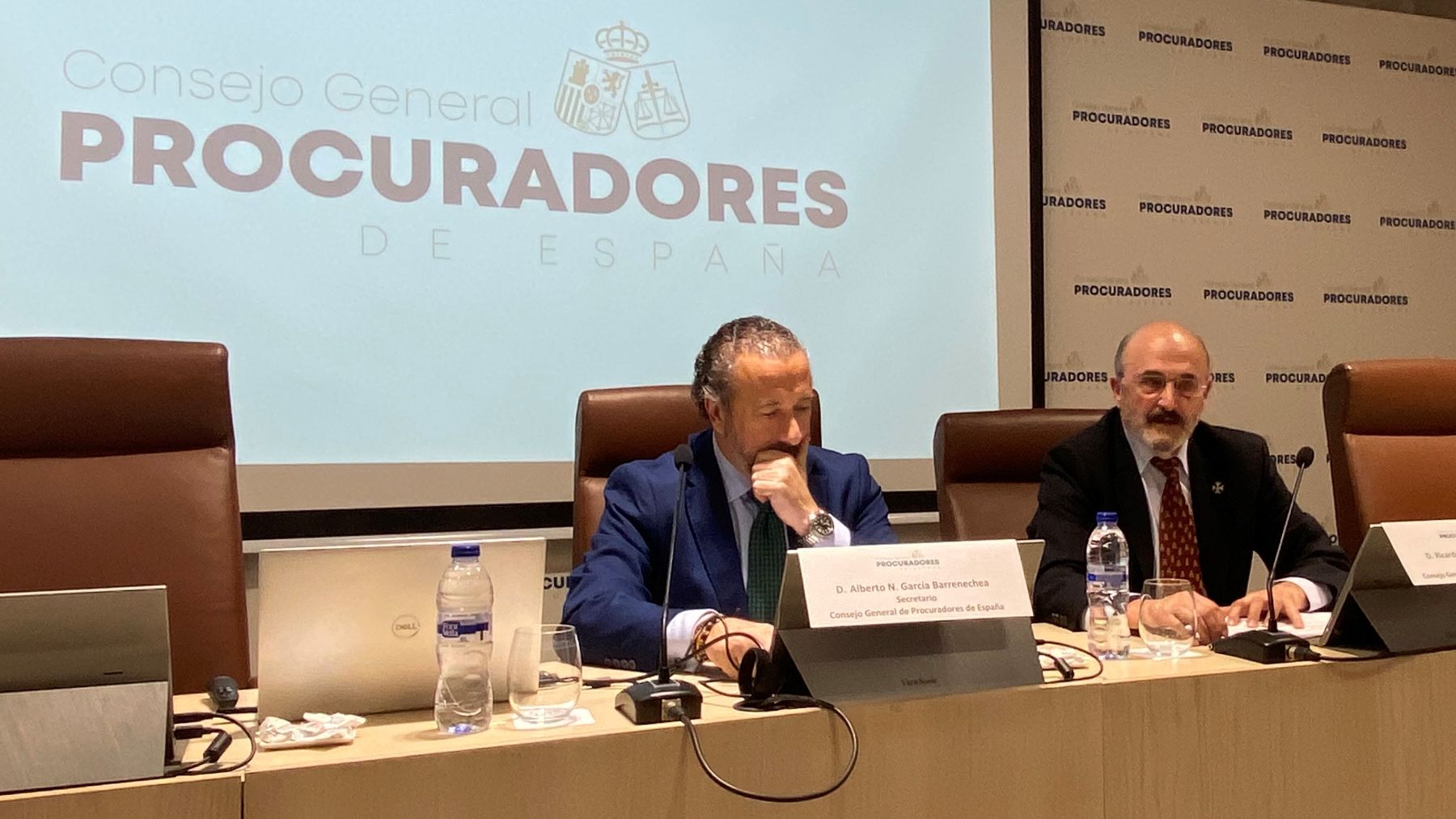At the headquarters of the General Council of Procurators of Spain (CGPE), the day “The organizational and procedural measures of Organic Law 1/2025, of January 2, of” Measures on Efficiency of the Public Justice of Justice and its impact on the exercise of the Attorney “.
The new Judicial Efficiency Law (Law 172025) establishes encouraging and forcing conciliation mediation processes and any other means of negotiating activity, to deal with the current number of judicial matters. It is not a bad idea because a high percentage of the lawsuits are susceptible to solution without loading the ordinary judicial system. But there are other solutions. The text, in force on April 3, introduces important novelties regarding consumers, procedural deadlines, powers and the obligation to try agreements before going to the court.
This event has meant a key opportunity to understand the reforms implemented by this new law and its impact on the daily exercise of the Attorney. José Carlos Orga Larrésmember of the General Council of the Judiciary, and Verónica Ollé SeséGeneral Director for the Public Justice Service, offered a detailed analysis of how judicial structures have been designed to make the administration of justice more accessible and efficient exploring the reconfiguration of the judicial system through the creation of the courts of instance and the offices of justice in the municipalities.
For its part J. Miguel Bueno SánchezAyala de la Torre Lawyers and State Attorney, analyzed the implementation of the adequate controversy solution (MASC) as a procedural requirement by revealing the emerging role of the attorney as a private conciliator and reflecting the need to prioritize the friendly resolution of conflicts instead of going to the prolonged litigation.
Manuel Díaz MartínezProfessor of Procedural Law of the UNED, presented the most significant reforms in the declarative processes, which includes changes in the procedural regulations that seek to expedite and simplify the judicial procedures, thus optimizing the workload of the courts.
By the CGPE they intervened Óscar Alonso Garcíavice seasorero José Antonio Fandiño CarneroDean attached to the Presidency and Alejandro Asensio MuñozLawyer of the Administration of Justice of the Commercial Court number 16 of Madrid, which referred in two interventions to the new responsibilities that the attorneys will assume within the framework of the execution, highlighting their crucial role in the efficiency of the judicial service.
The mediator attorney saves, the executive attorney, more
«The attorneys have been pioneers, constituting in 2015 the mediation institution of the General Council of Procurators of Spain and others promoted by the respective schools. All with very little success, because it does not exist in Spain or culture or economic incentives towards mediation, ”they say from Procurators. Now, Law 1/2025 promotes the “adequate mechanisms for conflict resolution” with the intention of making them “an essential tool to decongest the courts and facilitate agreements prior to the judicial procedure”.
José Antonio Fandiño, deputy dean of the General Council of Procurators of Spain (CGPE) and president of the Mediation Commission is clear: “I hope it works, but its obligation ensures the procedure, not its effectiveness.” Fandiño clarifies that the Procurators mediation institution “is a key element in our corporate responsibility to promote the culture of mediation.”
“The CGPE believes in mediation, but to expedite justice and resolve conflicts in a timely manner the best solution is to grant more competences to the attorney: executions, notifications, embargoes, procedures … Create the executive attorney, at zero cost for the State and in a similar way to how in Portugal or France the judicial traffic jam has been reduced by half,” explains the attachment of the CGE.
In conclusion, all legal professionals must be aware that alternative conflict resolution methods have come to stay. But Law 1/2025 seeks to overcome this situation with the deficit of regulatory development and economic endowment. «The attorneys will see the MASC as an ally and not as an enemy to beat and we are prepared to help and display all our benefits. Give us competences ».
Alberto García BarrenecheaDean of the Illustrious College of Procurators of Madrid (ICPM) and secretary of the CGPE moderated the day and pointed out in its presentation that “the procedural efficiency law implies a milestone in facing the need shared by all legal operators of expediting and modernizing the administration of justice in Spain. Its implementation is a challenge for the procurers, which must adapt to a legal framework that enters the digitalization and incorporation to our proper media culture of conflict resolution (MASC) as a fundamental tool. ”
Finally, a question and observations turn from the attendees took place. The CGPE, with this day, has wanted to contribute to the deep understanding of the implications of Law 1/2025 for the exercise of the Attorney and to analyze from different perspectives the transformations that the judicial system will experience.










